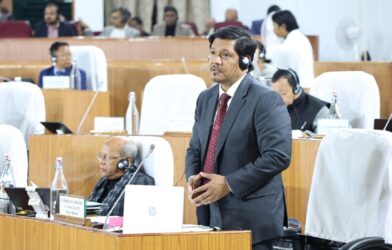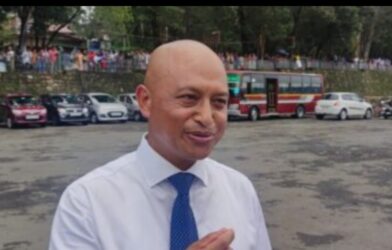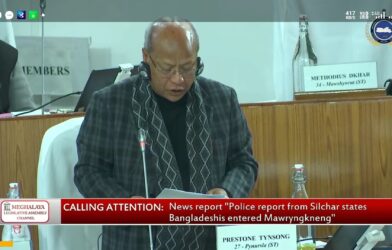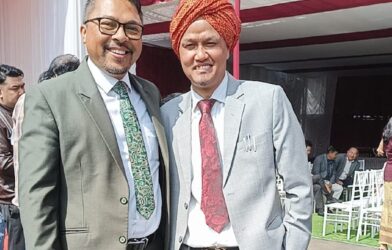New Delhi , Sep 26: The Supreme Court on Wednesday upheld the constitutional validity of Aadhaar and said that it empowers the marginalised sections of the society. However, it ruled that the Aadhar card is not needed for school admissions and mobile phone connections. The 12-digit unique identification number will also not be mandatory for UGC, NEET and CBSE Exams. The court also asserted that Aadhar card will not be provided to illegal migrants.
The Supreme Court also asked the central government to introduce a strong data protection law as soon as possible.
A five-judge Constitution Bench passed the verdict in the case, while Justice A K Sikri authored the judgement on behalf of himself, Chief Justice of India (CJI) Dipak Misra and Justice AM Khanwilkar. The two other justices D Y Chandrachud and Ashok Bhushan wrote their opinions separately.
“Aadhaar empowers the marginalised section of the society and gives them an identity, Aadhaar is also different from other ID proofs as it can’t be duplicated,” Justice AK Sikri read out the verdict.Â
“It is better to be unique than being the best and Aadhaar is unique,†he added.
“The arguments of the petitioners are very different. There is a fundamental difference between Aadhaar card and identity. Once the biometric information is stored, it remains in the system,†Justice Sikri explained.
The Court further said that minimal demographic and biometric data of citizens are collected by the Unique Identification Authority of India (UIDAI) for Aadhaar enrolment and the Aadhaar number given to a person is unique and can’t be provided to any other person.Â
The apex court announced the verdict on a number of pleas challenging the constitutional validity of Aadhaar and its enabling Act. The key arguments of the petitioners were that the Aadhaar scheme is unconstitutional and is in violation of the fundamental right to privacy and personal body autonomy.
The bench had reserved the judgement in the matter on May 10 after a long-standing hearing that went on for nearly 38 days, spanning over four months.Â
The challenges against Aadhaar had started even before the law came into existence in 2016. At least 31 petitions, including one by former High Court judge KS Puttaswamy, have been filed in the matter.
During the course of the hearing the court, on March 13, had indefinitely extended the deadline for linking Aadhaar with bank accounts and mobile phone numbers.
On March 22, the Supreme Court had allowed the UIDAI to give a PowerPoint presentation to allay concerns pertaining to the technical issues pointed out by the petitioners over the unique identification number.
The counsel for the petitioners, Shyam Divan, had raised concerns over the ‘integrity of the process, integrity of the information and pervasive violation of fundamental rights. He had told the apex court that Aadhaar may cause the ‘death of citizens’ civil rights’.
While the government and the UIDAI have defended the scheme on every instance by stating that it ensures benefits are distributed among the population in a proper manner and also deters siphoning of funds.
(ANI)






